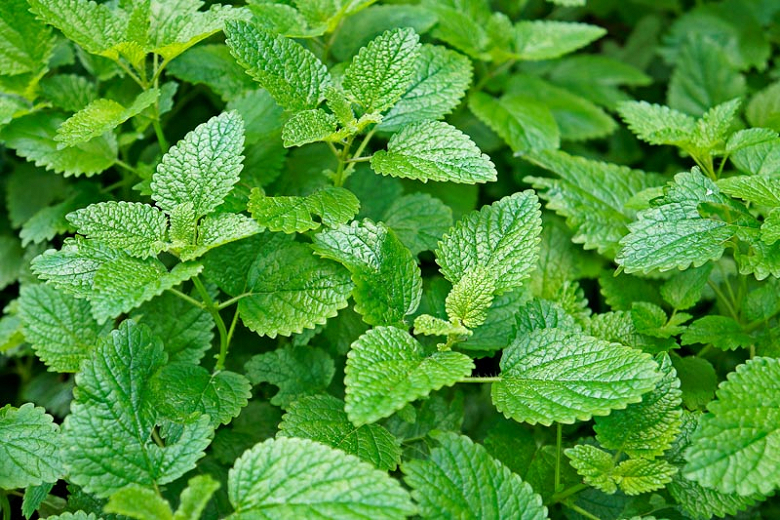Lemon Balm (Melissa officinalis): The Calming and Refreshing Herb
Lemon balm, scientifically known as Melissa officinalis, is a perennial herb native to the Mediterranean region and cultivated in many parts of the world for its numerous medicinal and culinary uses. This herb is highly valued for its lemony scent and flavor, as well as its calming and uplifting properties. In this article, we will explore the fascinating world of lemon balm, including its botanical features, historical uses, chemical constituents, and potential health benefits.
Botanical Features:
Lemon balm is a member of the mint family, characterized by its square stems and opposite leaves. The leaves of lemon balm are heart-shaped with serrated edges and emit a refreshing lemon-like fragrance when crushed. The plant produces small, white or pale pink flowers that attract bees and other pollinators. Lemon balm is a hardy herb that grows well in temperate climates and can reach a height of up to three feet.
Historical Uses:
Lemon balm has a long history of use dating back to ancient times. It was revered by the Greeks and Romans for its medicinal properties and was often used to soothe the mind, promote relaxation, and improve sleep. In traditional European herbal medicine, lemon balm was employed for digestive complaints, nervous tension, and as a topical application for skin conditions. It was also used in culinary preparations, such as teas, syrups, and liqueurs, for its aromatic and flavor-enhancing qualities.
Chemical Constituents:
Lemon balm contains a variety of active compounds that contribute to its therapeutic effects. These include volatile oils, such as citronellal, citral, and geraniol, which are responsible for its distinctive lemon scent. Lemon balm also contains flavonoids, phenolic acids, tannins, and rosmarinic acid, which possess antioxidant and anti-inflammatory properties.
Potential Health Benefits:
1. Calming and Relaxation: Lemon balm is renowned for its calming effects on the nervous system. It has been traditionally used to reduce anxiety, promote relaxation, and improve mood. Studies have suggested that lemon balm may help alleviate symptoms of anxiety disorders and promote a sense of calmness.
2. Sleep Aid: Lemon balm has been used for centuries to support healthy sleep patterns. Its mild sedative properties and ability to reduce anxiety may help improve sleep quality and ease insomnia. Drinking lemon balm tea before bedtime is a popular natural remedy for promoting restful sleep.
3. Digestive Health: Lemon balm has carminative properties, meaning it can help soothe and relieve digestive discomfort. It may help alleviate symptoms of indigestion, bloating, and flatulence. Lemon balm tea or extracts can be consumed to support healthy digestion.
4. Cognitive Function: Lemon balm is believed to have cognitive-enhancing effects. It has been traditionally used to improve memory, focus, and concentration. Some studies have shown that lemon balm may have a positive impact on cognitive performance and may be beneficial for individuals with mild cognitive impairment.
5. Antioxidant and Anti-inflammatory Properties: The antioxidant compounds present in lemon balm, such as rosmarinic acid, help protect cells from oxidative stress and reduce inflammation in the body. These properties may contribute to its overall health benefits and its potential role in preventing chronic diseases.
6. Cold Sore Relief: Lemon balm has been used topically to speed up the healing process of cold sores caused by the herpes simplex virus. Its antiviral properties may help reduce the duration and severity of outbreaks.
7. Mood Enhancement: Lemon balm has mood-lifting properties and is often used to alleviate symptoms of mild depression. It may help improve overall well-being, promote positive mood, and reduce stress levels.
How to Use Lemon Balm:
Lemon balm can be used in various forms, depending on the desired effect. It can be consumed as a tea by steeping fresh or dried leaves in hot water for several minutes. Lemon balm leaves can also be used to flavor culinary dishes, such as salads, soups, and desserts. Additionally, lemon balm extracts, tinctures, capsules, and essential oils are available for more concentrated and convenient use.
Precautions and Considerations:
Lemon balm is generally safe for most individuals when used in moderation. However, it is important to note the following:
1. Allergies: Some individuals may experience allergic reactions to lemon balm. If you have known allergies to plants in the mint family, such as basil or oregano, exercise caution when using lemon balm.
2. Interaction with Medications: Lemon balm may interact with certain medications, including sedatives, thyroid medications, and antiviral drugs. Consult with your healthcare provider before using lemon balm if you are taking any medications.
3. Pregnancy and Breastfeeding: Limited information is available regarding the safety of lemon balm during pregnancy and breastfeeding. It is advisable to consult with a healthcare professional before using lemon balm if you are pregnant or breastfeeding.
Conclusion:
Lemon balm is a versatile and beneficial herb known for its calming, uplifting, and medicinal properties. Whether used for its relaxing effects on the nervous system, its digestive benefits, or its potential cognitive-enhancing properties, lemon balm offers a range of potential health benefits. From teas and culinary preparations to extracts and essential oils, lemon balm can be incorporated into daily routines to promote overall well-being. As with any herbal remedy, it is recommended to consult with a healthcare professional before using lemon balm, especially if you have any underlying health conditions or are taking medications.





0 Comments